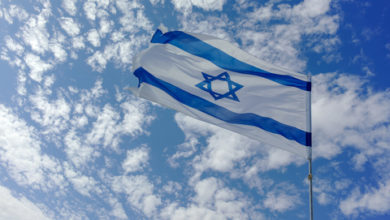“These are What I Want”
In the last chapter of Moreh Nevuchim the Rambam lists various opinions about the purpose of life. As far as he is concerned, the first three are not sufficient to justify life, since they are not uniquely relevant for a human being because of his innate essence. These goals are: (1) possessions, (2) a healthy body, and (3) proper behavior.
With respect to the goal of amassing wealth, which includes a desire for governmental authority over others, the Rambam notes that this is merely an imagined benefit. Ownership of a specific object and governmental authority are nothing more than social conventions and not real objects. It would be a shame for a person to invest his efforts in activity that is based solely on imagination.
Physical health is certainly more worthy than wealth, but in this case the goal is not different from the objective of all living creatures, which are also in need of health. Thus, this is not unique to mankind.
Good personal traits are needed in order to maintain proper relationships between one human being and another. But if a person finds himself without any social framework, what need does he have for good behavior?
The Rambam’s source for this train of thought is found in the final verses of this week’s Haftarah. “This is what G-d said: Let no wise man glorify himself for his wisdom, let no powerful man glorify himself for his prowess, let no rich man glorify himself for his wealth” [Jeremiah 9:22]. The wise man is concerned with proper behavior, the powerful man is involved with maintaining physical health, and the rich man gathers wealth. While all three of these are worthy and important for human perfection, they are not the ultimate objective of life. The real ultimate goal of life is to get to know G-d: “Let man glorify himself with this: To understand and to know Me” [9:23]. This is contrary to the commonly accepted belief that the main goal of mankind is to serve G-d by observing the mitzvot. Rather, the mitzvot are the means why which a knowledge of G-d can be achieved and not the goal itself (the Rambam expands this in Hilchot Yesodai Torah 4:13).
We have seen so far how the words of the prophet correspond to the ideas of the philosophers, who see the ultimate goal of mankind as a life of deep thought. The Rambam then adds that the prophet could have stopped there, since in his words he had already presented the objective of life. However, what the prophet adds next shows what is unique about the Torah of Israel. “For I am G-d, who performs kindness, justice, and charity on the earth, for these are what I want, G-d says” [9:23]. After the knowledge of G-d a new objective rises up – kindness, justice, and charity. These are values which encompass all the practical aspects of morality. Before a full understanding of G-d is achieved these are merely technical tools needed to reach the understanding, after the knowledge of G-d is complete the goal becomes to reveal the will of G-d and to become holy.
The Ramchal (Rabbi Moshe Chaim Luzzatto) adds to the words of the Rambam that not only is accepted behavior a worthy value for those holy people who know G-d, for them health, wealth, and other worldly matters have a high ethical value too. Thus, perfect sanctity is not contrary to the life in the world to come, rather it serves as an intermediary stage between the body and the soul. (See Messilat Yesharim, Chapter 26.)
Source: “NOTES FROM THE HAFTARAH” – a biweekly column in Shabbat B’Shabbato (Zomet Institute) See: http://www.zomet.org.il/eng – Tzav 5776, issue 1617.
————– In the neantime until the prophecy willcome back:
Have a doctor’s appointment and feel the need to pray?
Looking for a partner? wanted to ask God’s help?
Need help making a living and want to know how to pray?
Looking for the right words prophetic tradition to thank the Creator?
Wish to pray Like the Old Testament prophets?
The prayers which was passed on traditionally
from the time of the Prophets – And have been
preserved for thousands of years among the people of Israel?!
Source: “NOTES FROM THE HAFTARAH” – a biweekly column in Shabbat B’Shabbato (Zomet Institute) See: http://www.zomet.org.il/eng – Pekudai 5776, issue 1615.



